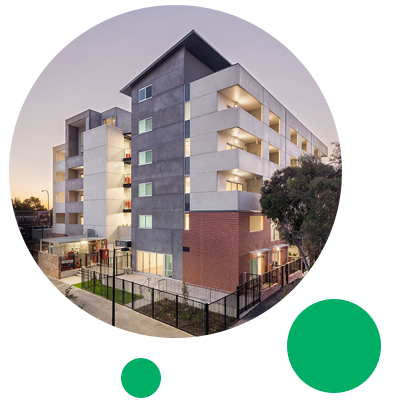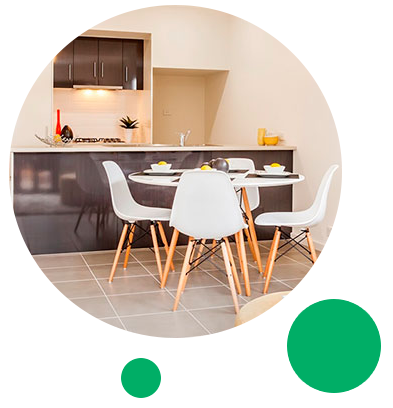In order to achieve our long term vision we will deliver a number of social, affordable and market housing outcomes over the next 10 years. Our future developments will be delivered via redevelopment and upgrade of our assets and new residential homes.
Our new residential development will consist of:
- new social housing for retention (to replace existing transferred stock) – to be delivered through the redevelopment of transferred stock and Unity Housing’s internal asset renewal program;
- new affordable housing for retention (75% of market rent);
- new affordable housing for sale via pathways to home ownership (rent to buy);
- new affordable housing for sale via pathways to home ownership (shared appreciation);
- new market housing for sale – to be delivered through baseline development growth model; and
- upgrade of transferred stock.
Our new residential development strategies have been created specifically to support the objectives of the Renewing Our Streets and Suburbs (ROSAS) program and will encourage housing growth and contribute to healthy, affordable and liveable neighbourhoods.


